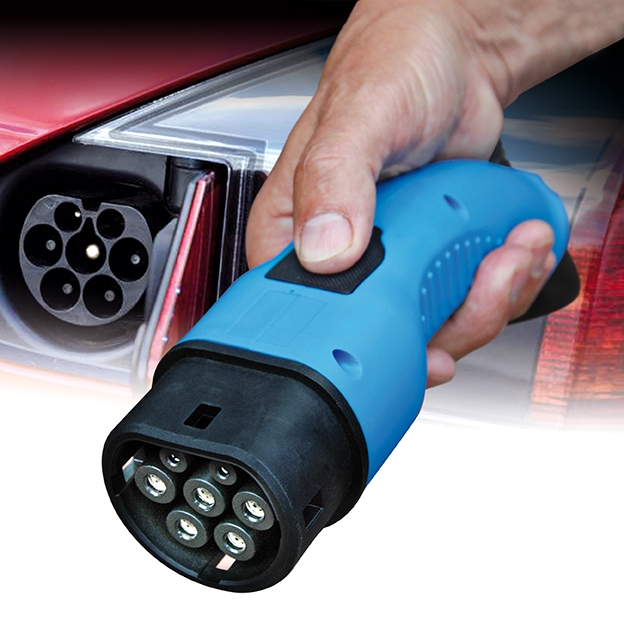Table of Content
- GMC Sierra EV Denali
- How Do I Charge My Car At A Public Charging Station?
- Learn about EVs from the comfort of home
- Installation Process and Cost
- How to charge an electric car in public
- Cost to Install Vehicle Charging Station
- Can I install my own electric charger?
- What does this information tell us about installing a home charger?
It’s slightly more expensive to get a portable station, but you get the benefit of not having to pay for installation again should the station need to be replaced. Portable stations plug into a 240-volt outlet installed in the wall and can be removed, whereas hardwired stations are basically boxes attached to the wall. This depends on the car and charger type and can be anywhere from a few hours to an entire day. A standard electric vehicle with a 60kWh battery takes around eight hours to charge fully.

Be sure to see whether the incentives apply to level 2 stations, as some of them only apply to level 3 DCFC installation. Most EV manufacturers recommend plugging your car in whenever you are home. Make sure to check the battery life regularly to ensure optimal vehicle performance. Speak to your town or city hall to get more information about whether you need a permit. Updated the introduction to include a new price range and average cost.
GMC Sierra EV Denali
Updated the additional considerations section with information on wire spreading, permits, overloading the system, and solar panels. Updated the introduction with high and low costs and more information. Updated the introduction with new information, project scopes, and project costs. Select companies that are insured, bonded, and have been in business for longer than five years. Discounted Parking – Some cities and local businesses offer free public parking for EVs. Access to Carpool Lanes – Many states give EV owners access to high-occupancy vehicle lanes.
These portable chargers are cheaper because they do not require installation and can be plugged into any 120-volt outlet. They may take up to 24 hours to fully charge a battery, so they are generally only good if you do not drive often or only drive short distances. Essentially, a Level 1 charger adds roughly 2 to 5 miles of driving range to your car for every hour you charge it. Many people keep a Level 1 charger on hand for when they are away from home. But if you do a fair amount of daily driving, you may find that this charger will not meet all your needs, unless you can plug it in everywhere you go when the car is not in use.
How Do I Charge My Car At A Public Charging Station?
Most electric vehicle owners prefer to have their charging station in their garage, but for some owners that may not be an option. If you’re planning on installing an electrical panel outside of your garage, be sure to choose a well-protected spot. Wind, rain, and other elements can damage your charging station and wires if they aren’t covered.
Your battery needs to be recharged, ideally when your car is not in use. Essentially, it is a way to plug your car’s battery into an outlet that charges it. Because charging stations are not necessarily common in public spaces, most owners of electric vehicles install a charging station at home. In fact, according to the Natural Resources Defense Council , over 80 % of EV charging happens at home.
Learn about EVs from the comfort of home
Power management systems typically cost around $4,000 to $5,000, which gets tacked on to the installation costs. There are a couple of common ways to charge an electric vehicle. When you purchase a quality charging system that is designed for your vehicle and have it professionally installed, home car charging systems are completely safe. The National Electrical Code requires that any charging station needs to be certified by a Nationally Recognized Testing Laboratory before being installed anywhere in the US. Look for the NRTL mark on the charger you purchase, like the UL mark or the ETL mark to ensure it went through testing and is certified for safety.
This can save you hundreds, if not, thousands of dollars on the cost to install a home charging station. The home charging station is technically known as the Electric Vehicle Supply Equipment . However, is it commonly known as the charging station, or simply, the charger.There are three levels of charging (Level 1—the slowest, Level 2, and Level 3—the fastest). Home charging stations only consist of Level 1 and 2 varietieepending on which charging level , cord length, and smart/WiFi capabilities, the charger can cost between $300 and $700.
Liesa Johannssen-Koppitz/Bloomberg via Getty ImagesA kilowatt-hour is a measure of energy. You are charged per kilowatt-hour to charge your electric vehicle. John Voelcker, an automotive journalist and industry analyst, commented on this toKelly Blue Book. Voelcker notes that most electric cars get between three and four miles out of each kWh. If you divide the total miles driven each month by three, you can get the amount of kWh you would use monthly.
Charge stations can be found in all EV models with built-in navigation systems. Apps streamline payment and enable you to monitor the status of your vehicle’s charging. There are far fewer charging stations for free than charging stations for payment. When charging stations charge, they draw energy from the car’s battery for kilowatt-hour . The average residential electric bill in the United States is nearly 14 cents per kWh. Most public charging stations are unlikely to charge you for less than $2.
EvoCharge offers Level 2 chargers that are secure, cost-effective and easy to install at home. The EVSE and iEVSE Home Smart chargers both charge up to 8x faster than Level 1 chargers, with a full vehicle charge from nearly empty taking between three and eight hours. To find out the specific time it will take EvoCharge EVSE units to charge your vehicle, we have an EV Charging Time tool. For EV home chargers with built-in charging cables, their length is an important factor that impacts the price considerably. Typically, EV home charging stations come equipped with 5 to 10-meter cables, although home EV chargers with 3 or even 1-meter cables are also available for tight parking spaces.

You can expect soft costs to account for approximately 5% of your overall EV station costs. Here you can view charging options and understand what is right for you. Tesla is also selling its Wall Connector with a J1772 connector, but the price has stayed the same at $550. This installation faced challenges of HOA approval and a concrete sidewalk and took about three days to complete. Public charging is a convenient option to charge while on the way.

No comments:
Post a Comment